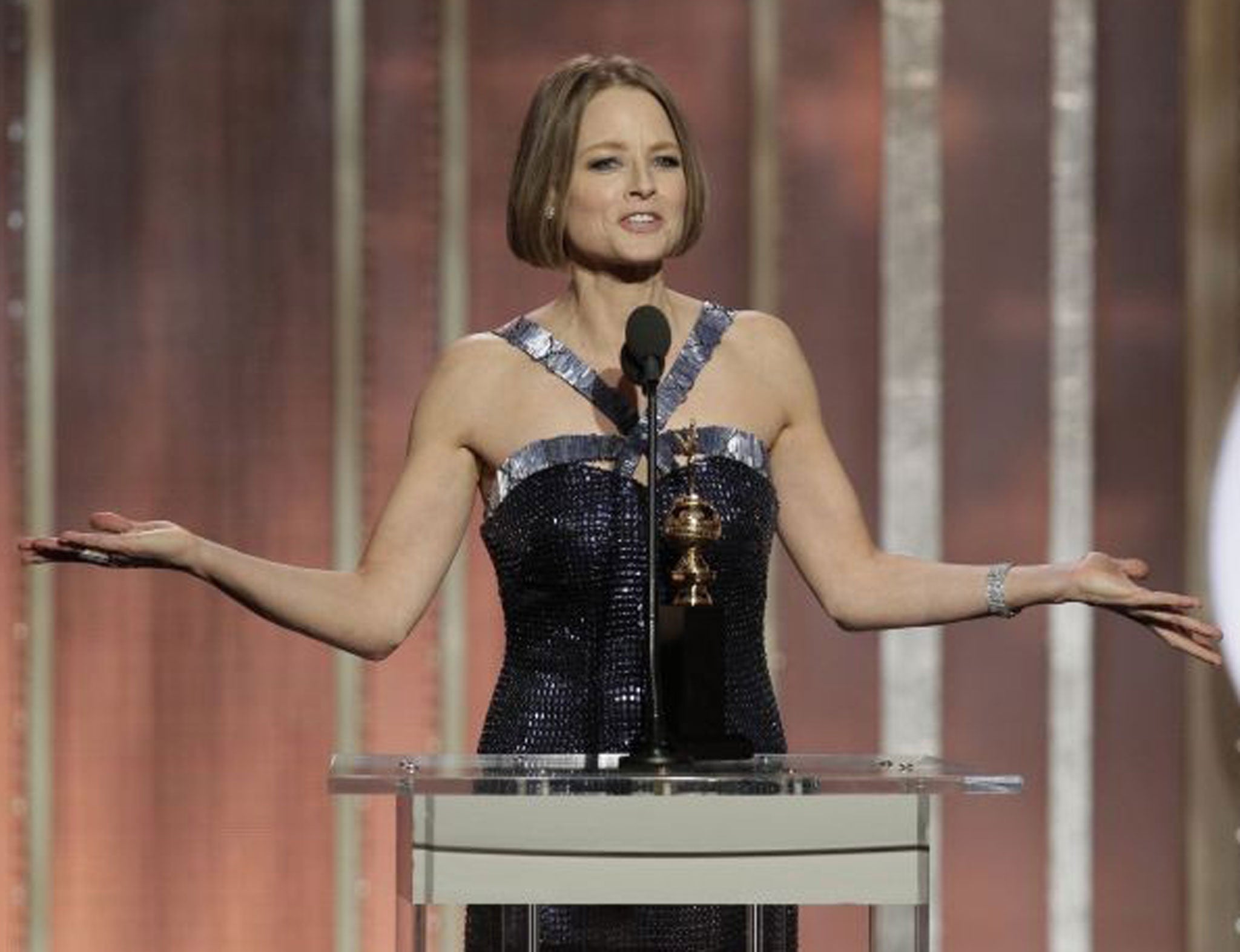Sophie Heawood: Jodie Foster's 'not-coming-out' speech can bring about positive change in Hollywood

Every good awards ceremony now requires a big splashy transgressive moment, whether it’s Kanye West ranting, Jarvis Cocker getting his bum out, or Ricky Gervais insulting everyone.
Yet at the Golden Globes last night, it was something altogether more moving that stopped everyone dead.
Jodie Foster made a coming-out speech - or rather, a speech about not coming out, saying she didn’t need to, having done her coming out “about a thousand years ago in the Stone Age, in those very quaint days when a young girl would open up to friends and family and co-workers, and gradually to everyone she actually met”.
Having been one of the people who Jodie Foster “actually met”, and had her come out to me in a similarly roundabout fashion, I was amazed she chose to contravene the Hollywood machine that has kept her silent for so long. She even joked about feeling nervous, “but not as nervous as my publicist right now”.
When I met Foster, two years ago, she was promoting the film The Beaver and I was interviewing her for a British magazine in a Beverly Hills hotel. Publicity reps were in earshot but out of sight.
Given her famous love of privacy, I wasn’t really expecting her to open up about her kids (who astound her with their love of Facebook and Twitter), or how she nurses her sick mother in her house (and will nurse her till her dying day; no care home, no way). Foster was brilliant, compelling company. I felt I could ask anything.
“Are you able to talk about why you decided to come out at a certain point?” I said, referring to a speech she had made years previously, in which she had also thanked her then girlfriend Cydney Bernard. She smiled, her voice went low. “I didn’t come out to anyone,” she said.
And then she grinned. “Publicly, certainly,” she added. I asked a bit more, and she said, “You thought I came out, so you can talk about that. But I can’t talk about that.”
Something about it didn’t ring true. She was calm, happy, and obviously had no qualms with me or anyone else knowing that she loved women. The issue seemed a purely linguistic one – she just wasn’t allowed to use the words herself.
The conspiracy theorist in me wondered if it was some murky contractual deal with the studios – which became even more plausible when one of her team bounded down the corridor after me, saying the interview had gone into personal territory that couldn’t be covered, that this couldn’t go to press. I disagreed and left. And then came the emails.
Eventually, I capitulated and didn’t print that bit. Not that they ever spelled out which part of our conversation they actually meant – again, nobody would use the words.
So, I for one was cheering while watching the Golden Globes. The industry has changed her for long enough – now she can change it.
Join our commenting forum
Join thought-provoking conversations, follow other Independent readers and see their replies
Comments